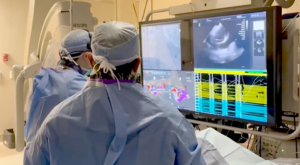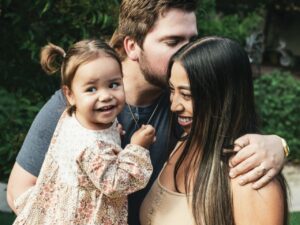
When Jacob Daruvala began work in April as a program coordinator at Unity Hope, an Inland Empire affiliate of CalHOPE, the job was very personal to him. In December 2020, he’d lost his grandfather to COVID-19, so he knew intimately the grief and heartache that this pandemic has wrought on millions of Californians.
“I knew I would be a good fit because it’s (COVID-19) affected me personally,” he said.
Daruvala wasn’t the only one whose mental health was impacted by the pandemic. From April 23 to May 5, 2020, 69% of adult Californians reported experiencing mental health symptoms at least several days out of the week, according to data from the U.S. Census Bureau Household Pulse Survey. The proportion increased as the virus progressed through the state, peaking at 73% in July.
That’s why the California Department of Health Care Services launched CalHOPE in June 2020, a crisis counseling assistance and training program funded by the Federal Emergency Management Agency. This mental health service connects people to free outreach, crisis counseling, and support services throughout the state via a warm line, chat line, and other online resources. For those who require more intensive care, referrals are given to behavioral health professionals.
With a network of peer counselors throughout California, CalHOPE can reach specific communities and meet people where they are. In the case of Unity Hope, that’s young adults and the LGBTQ+ community, of which Daruvala is a member. But CalHOPE has crisis counselors available for everyone, from veterans and African Americans/Blacks to Asian American/Pacific Islanders and parents.
Although much of Daruvala’s work involves managing a team of crisis counselors — which he describes as a “first responder for mental health” — he’s also on the other end of the phone when someone needs to talk. And he regularly makes “cold calls,” which he refers to as mindful conversation.
He finds word of mouth very effective when it comes to crisis counseling, and often, after he’s checked on people, he asks them to spread the word about CalHOPE’s available resources. They are designed to assist people in difficult times, are accessible to every Californian, and are available at no cost to all who need them.
After nearly a year in service, CalHOPE has logged more than 18,000 calls from people who are experiencing a mental health crisis or just need to talk through their emotional challenges. While the majority have been brief (under 15 minutes), more than 2,200 lasted over 15 minutes. The live chat, available at calhopeconnect.org, had roughly 17,000 chat interactions in April 2021 alone.
While callers’ concerns run the gamut, Daruvala said he feels most comfortable when talking about isolation, because it’s something that he has personal experience with and something that many Californians are also dealing with.
Although Daruvala is fully vaccinated, he said he is still not ready to return to life as normal. He’s finding that a lot of the people he talks to are expressing that same sentiment.
“It has resulted in the longest discussions with the folks that I have done counseling with: How can they feel secure so they can re-enter society?” he asked. “If they want to continue the mitigation, such as social distancing and masking, they can. Being affirming to folks and letting them know that their feelings are more widespread than they might think has been very rewarding.”
If callers are feeling isolated, Daruvala might suggest thinking about those they haven’t talked to in a while. And most of the time, he said, they might say, “Yeah, I guess I could reach out to this person.”
For those who may be hesitant to pick up the phone or don’t want to talk to a stranger, Daruvala sometimes encourages them to call him directly.
“Although we advertise the warm line and the chat line, if we’re comfortable with them, we’ll give them our info and have them contact us directly,’ he said.
He also encourages the people he talks to to connect with others in their lives.
“Part of why our group is called Unity Hope is because we believe that we are stronger when we are united with each other and with other people, and that we find strength through unity with other people,” Daruvala said.
But acknowledging that COVID-19 isn’t the only reason that people might seek help, peer crisis counselors are all trained to do some “light counseling” and to help people find the further along resources that might not be mental-health related.
“Maybe their stress is that they need to find food or clothing and we can help them to find those things and mitigate those other stressors in their life while also showing folks how to handle their own emotional state and cope with trauma and stress,” Daruvala said.
Daruvala said he finds a lot of fulfillment in helping others and in doing nonprofit work. Empowering people is what he likes best.
“You can empower people to work on and fix a lot of their problems,” he said. “But sometimes they just need a little bit of help to gain that empowerment.”
If you, a friend, or a loved one is struggling with anxiety, stress or feel isolated and depressed, reach out and get help now. It’s simple and free. Call 833-317-4673 or visit CalHOPE.org.



